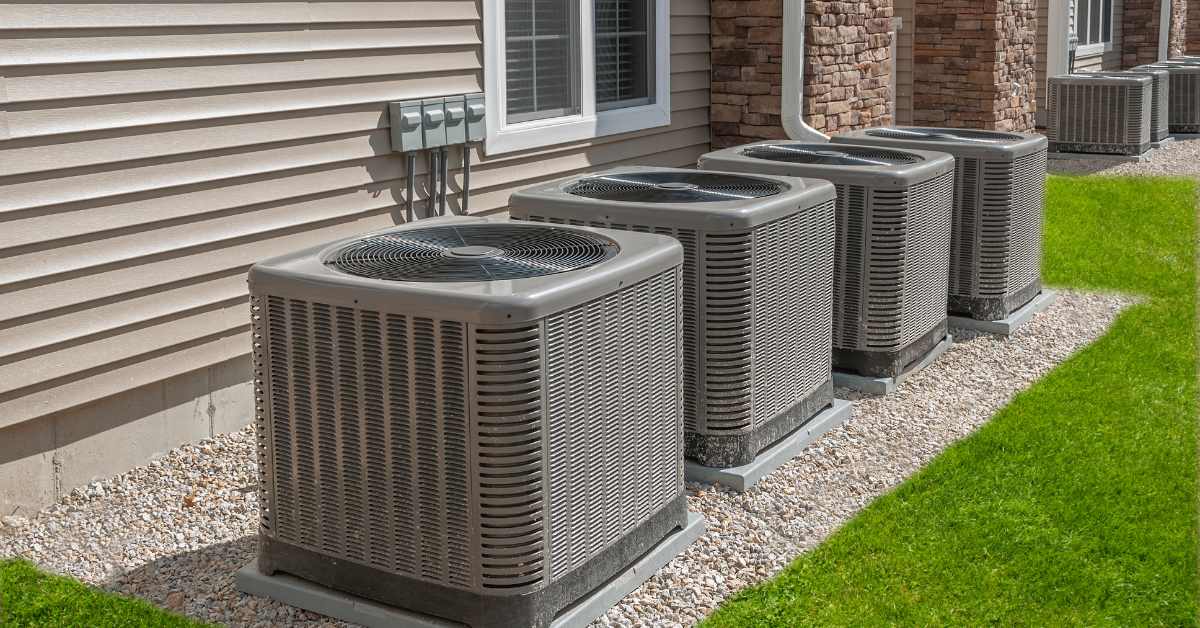
When the South Bend summer heat kicks in, your air conditioner should be your comfort MVP, not a source of stress. If your AC isn’t keeping up or seems to be cycling too often, the issue might not be a repair… it might be the wrong size. Believe it or not, AC sizing plays a major role in keeping your home comfortable and energy-efficient.
Experiencing issues with your AC? Don’t wait—contact us today using our online contact form or call (574) 498-7556. We’re here to help fast!
What Does “AC Sizing” Mean?
AC sizing refers to how much cooling power your system can provide, measured in BTUs (British Thermal Units) or tons. One ton equals 12,000 BTUs of cooling capacity per hour. While this might sound technical, it’s a crucial factor in how well your AC performs.
But here’s the thing: bigger doesn’t always mean better. A system that is too large for your space can cool your home quickly but unevenly, leading to other problems like poor humidity control. On the other hand, a system that’s too small will constantly run, struggling to keep up with demand, especially during South Bend’s hottest months.
The goal of proper sizing is to find the proper solution—not too big, not too small, but just right for your home’s unique needs.
Why the Right Size AC Unit Matters
It’s easy to assume that a more powerful unit will cool your home better. But in reality, correct sizing makes or breaks your comfort and efficiency. Let’s break down the risks of a poorly sized unit and the benefits of getting it right.
If Your AC Is Too Small:
- Overworked System: It runs constantly, trying to meet your home’s cooling needs.
- Reduced Comfort: Struggles to keep temperatures consistent, especially during peak heat hours.
- Shortened Lifespan: The extra wear and tear can lead to frequent repairs or early replacement.
- Higher Bills: Constant operation means increased energy use and rising monthly costs.
If Your AC Is Too Large:
- Short Cycling: The system turns on and off rapidly, which wears out components faster.
- Poor Humidity Control: It doesn’t run long enough to remove moisture, leaving the air damp and sticky.
- Uneven Cooling: Certain rooms may cool faster, while others remain warm.
- Increased Maintenance Needs: The repeated cycling adds stress to the unit, leading to more frequent breakdowns.
A properly sized unit ensures efficient operation, longer lifespan, consistent comfort, and lower utility bills. It’s not just a technical detail—it’s the foundation of a comfortable home.
How HVAC Pros Determine the Right AC Size
Choosing the right AC isn’t a guessing game—it’s a precise process that takes your entire home into account. When you work with a trusted professional like Great Lakes Heating & Air Conditioning, we calculate the load to ensure your system is sized accurately for your space.
Here’s what’s evaluated during the process:
- Square Footage: The most basic factor, but just the starting point.
- Window Quantity and Placement: Windows let in heat; more windows or sun-facing ones require more cooling.
- Insulation Levels: Well-insulated homes retain cool air better, which can affect the size needed.
- Ceiling Height: Higher ceilings mean more air to cool, requiring more capacity.
- Sun Exposure and Shade: Homes in direct sunlight warm up faster than shaded homes.
- Appliance and Electronics Heat: Ovens, computers, and other appliances add heat to the cooling load.
- Number of People: Each person generates body heat, which impacts cooling requirements.
- Air Leakage: Drafts or gaps in doors/windows can make your AC work harder.
All these factors contribute to a customized recommendation, not a cookie-cutter solution. At Great Lakes Heating & Air Conditioning, we ensure your system fits your space, not just the specs on a box.
When to Reassess Your AC Size
Even if your AC was perfectly sized when installed, life happens—and so do home improvements. If you’ve made any significant changes to your home, it may be time to examine whether your system is still the right fit.
Here are a few signs and situations that may indicate your system is due for a reassessment:
- You’ve Added Square Footage: Finishing a basement, building an addition, or enclosing a sunroom all add demand to your AC system.
- Insulation or Window Upgrades: These can reduce the cooling load, which might mean your current system is now oversized.
- Hot or Cold Spots: Uneven cooling could point to ductwork issues or a misaligned system size.
- High Utility Bills: If your energy use has climbed, it could be due to inefficiency from improper sizing.
- Frequent Cycling or Noise: An oversized unit may cycle on and off too frequently, while an undersized one may run nonstop.
Your home evolves over time, and your AC should evolve with it. If any of these signs sound familiar, schedule a professional AC installation and replacement with our team to ensure your system matches your comfort needs.
Get Help from the Experts at Great Lakes Heating & Air Conditioning
Don’t let AC sizing issues leave you sweating this summer. At Great Lakes Heating & Air Conditioning, our friendly and skilled technicians are ready to guide you through every step—no pressure, just honest help. Reach out today through our online contact form or call us at (574) 498-7556 to schedule your evaluation and stay cool all season long.

